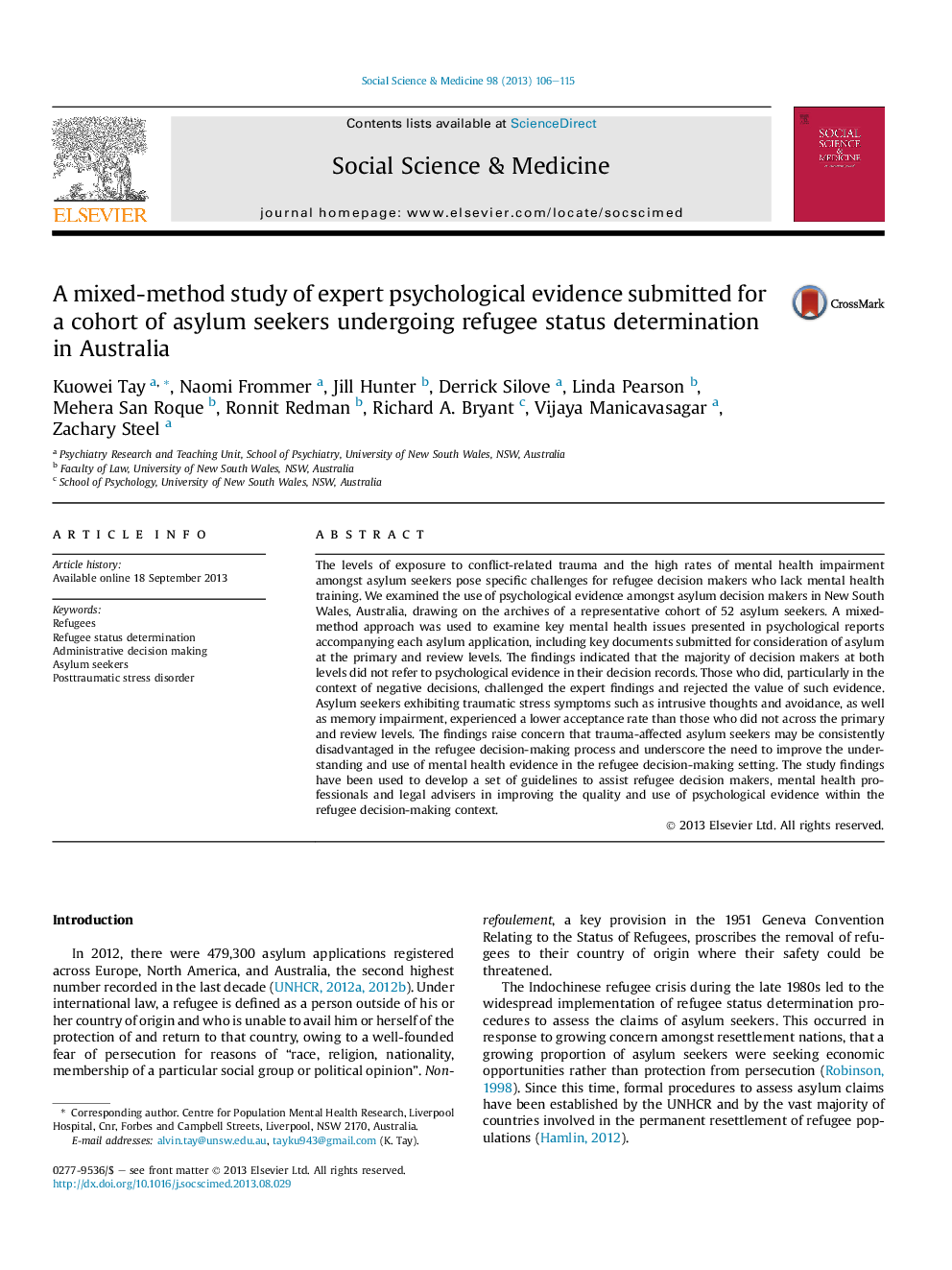| Article ID | Journal | Published Year | Pages | File Type |
|---|---|---|---|---|
| 7336428 | Social Science & Medicine | 2013 | 10 Pages |
Abstract
The levels of exposure to conflict-related trauma and the high rates of mental health impairment amongst asylum seekers pose specific challenges for refugee decision makers who lack mental health training. We examined the use of psychological evidence amongst asylum decision makers in New South Wales, Australia, drawing on the archives of a representative cohort of 52 asylum seekers. A mixed-method approach was used to examine key mental health issues presented in psychological reports accompanying each asylum application, including key documents submitted for consideration of asylum at the primary and review levels. The findings indicated that the majority of decision makers at both levels did not refer to psychological evidence in their decision records. Those who did, particularly in the context of negative decisions, challenged the expert findings and rejected the value of such evidence. Asylum seekers exhibiting traumatic stress symptoms such as intrusive thoughts and avoidance, as well as memory impairment, experienced a lower acceptance rate than those who did not across the primary and review levels. The findings raise concern that trauma-affected asylum seekers may be consistently disadvantaged in the refugee decision-making process and underscore the need to improve the understanding and use of mental health evidence in the refugee decision-making setting. The study findings have been used to develop a set of guidelines to assist refugee decision makers, mental health professionals and legal advisers in improving the quality and use of psychological evidence within the refugee decision-making context.
Related Topics
Health Sciences
Medicine and Dentistry
Public Health and Health Policy
Authors
Kuowei Tay, Naomi Frommer, Jill Hunter, Derrick Silove, Linda Pearson, Mehera San Roque, Ronnit Redman, Richard A. Bryant, Vijaya Manicavasagar, Zachary Steel,
